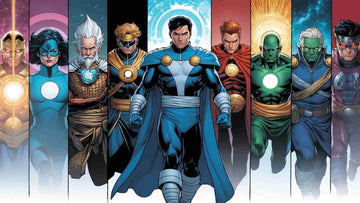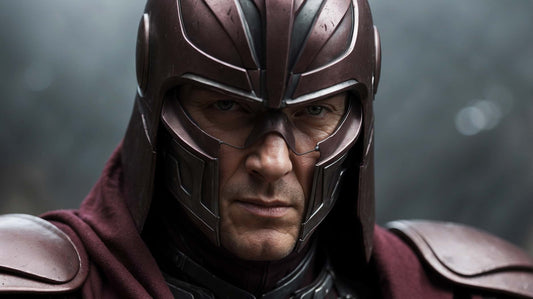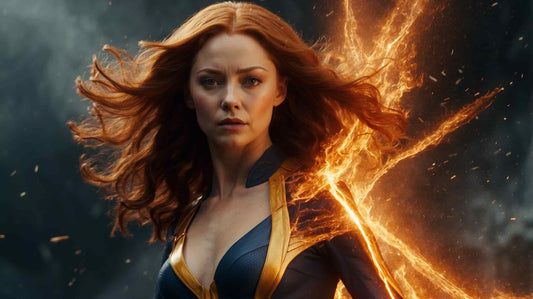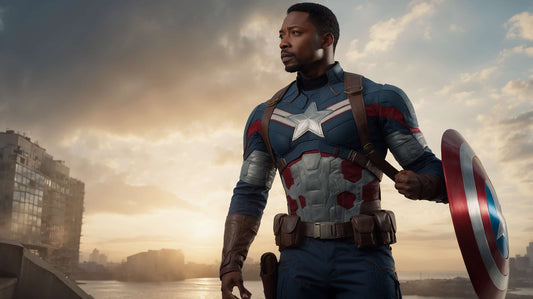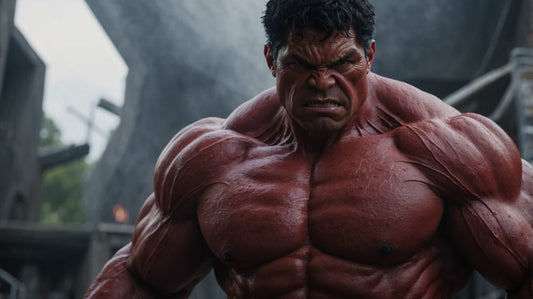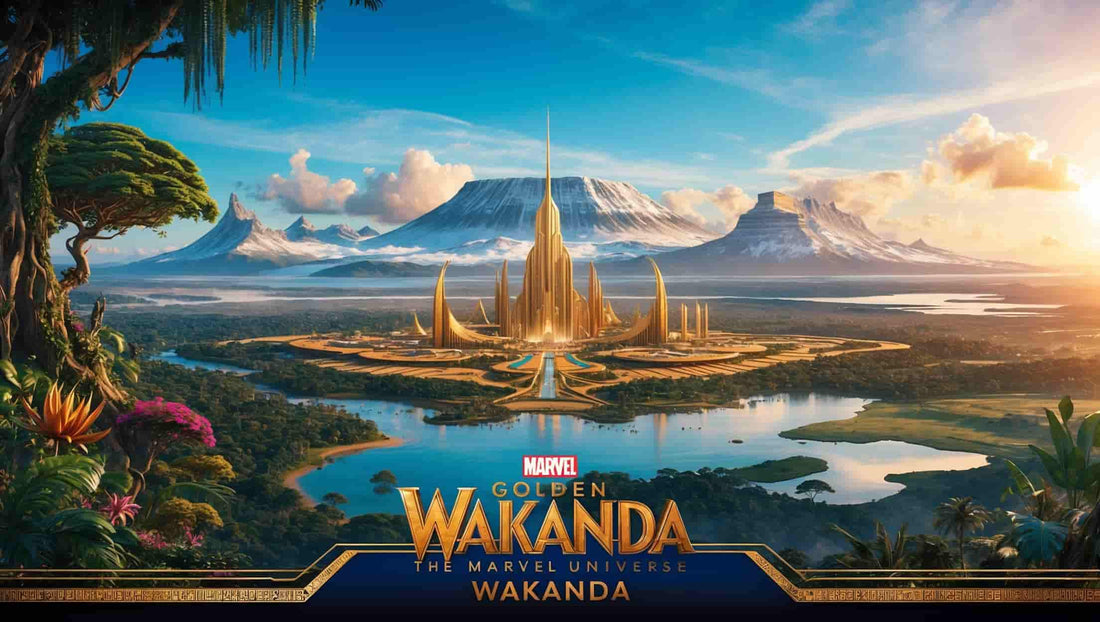
What is Wakanda in Black Panther?
Wakanda is a fictional nation located in East Africa, at the heart of the Marvel universe. Known for its isolation, its exceptional natural resources, including vibranium, and its unparalleled technological development, Wakanda represents an advanced nation.
In films and comics, it embodies an idealized vision of a prosperous and autonomous Africa, never colonized, having preserved its traditions while embracing futuristic technologies.
Wakanda is a central element in Black Panther, where it symbolizes cultural identity and social justice.
What is Wakanda's history?
Wakanda's history begins with the fall of a gigantic vibranium meteor thousands of years ago, transforming the region and providing its inhabitants with an invaluable resource. Wakandan society was then built around this resource, developing advanced technologies while establishing a religious cult centered on Bast, the panther goddess.
Over generations, Wakanda has been ruled by a series of kings and queens, each holding the title of Black Panther, a protector endowed with superhuman powers obtained by consuming the heart-shaped herb, enriched by vibranium.
The country is made up of five main tribes, each with a specific role in society:
- • The River Tribe: Specialized in fishing and water resources.
- • The Mining Tribe: In charge of extracting vibranium.
- • The Border Tribe: Responsible for the country's border security.
- • The Merchant Tribe: Manages trade, primarily within the country.
- • The Jabari Mountain Tribe: Prefers ancient traditions and stays away from technological innovations.
These tribal differences reflect the cultural diversity within Wakanda, while consolidating national unity under the authority of the king or queen.

Where is Wakanda located?
Wakanda is located in East Africa, near Lake Turkana, although its exact location varies slightly depending on the comics and film versions. The country is often described as a mountainous region that is difficult to access, favoring its natural isolation.
This geographical position allows Wakanda to conceal its futuristic cities and infrastructures behind dense forests and advanced cloaking technologies, such as camouflage fields.
The landscape includes:
- • Mountains: Home to the Jabari Tribe and serving as a natural protection.
- • Lush forests: Providing dense cover that conceals technological installations.
- • A futuristic urban environment: The capital, Birnin Zana, is a blend of modernity and traditional architecture.
Why is Wakanda technologically advanced?
Wakanda is the most technologically advanced nation in the Marvel universe, primarily due to its reserves of vibranium. This metal possesses unique properties, such as absorbing vibrations and the ability to store energy, and is also the main material of Captain America's shield. Vibranium is used in various fields:
- • Medicine: To heal wounds and treat illnesses.
- • Transportation: Anti-gravity vehicles for rapid travel.
- • Defense: Energy weapons and protective technologies.
Wakanda's scientific culture promotes innovation, with research institutions encouraging discoveries in physics, engineering, and nanotechnology.
Shuri, T'Challa's sister, exemplifies this with her innovative creations such as the Black Panther suit made with nanotechnology. This ability to push the limits of technology while remaining discreet in relation to the outside world is one of Wakanda's most fascinating aspects.

Why did Wakanda isolate itself?
Wakanda adopted a policy of isolationism to protect its natural resources, mainly vibranium, and preserve its way of life. This strategy aimed to avoid foreign covetousness and ensure the autonomy of the country.
Concealment technologies, such as camouflage fields, mask Wakanda's true level of development, making it appear to be a poor and underdeveloped country.
The motivations behind isolationism include:
- • Protection of vibranium: To avoid international conflicts and theft.
- • Preservation of cultural identity: To maintain traditions without external influence.
- • Rejection of colonialism: To protect Wakanda from exploitation and assimilation attempts.
However, this policy also has disadvantages, such as a lack of alliances and diplomatic relations. In Black Panther, T'Challa decides to open Wakanda to share its knowledge and technologies, marking a turning point in the country's history.
The culture and traditions of Wakanda
The culture of Wakanda is a rich blend of ancestral traditions and modern innovations. Spiritual practices are centered on Bast, the panther goddess, and the Black Panther's inauguration ritual involves consuming the heart-shaped herb, which grants superhuman powers.
Society is organized into different tribes, each having a specific role and respecting distinct customs.
Wakandan clothing often incorporates vibranium fibers for both aesthetic and practical reasons. The arts are infused with geometric patterns inspired by traditional African cultures, while science and research play an important role in the culture, with a strong emphasis on technological innovation.
What does Wakanda mean?
The term "Wakanda" has several potential meanings. In Native American cultures, particularly among the Sioux, "Wakanda" refers to a spiritual or divine force. There is also a people called the Wakamba in Kenya. In the Marvel universe, the name symbolizes a place of power, mystery, and potential, reinforcing the image of a nation that is both real and mythical.
The Black Panther's armor
The Black Panther's armor is one of the most technologically advanced pieces of equipment in the Marvel universe. It is made from vibranium, giving it extreme durability and the ability to absorb kinetic impacts. The armor can also store energy from attacks and redistribute it as powerful blasts.
The latest improvements include nanite technology, allowing the armor to form instantly around the wearer.
Designed by Shuri, T'Challa's sister, the Black Panther's armor represents the pinnacle of Wakandan technology. It also features communication and surveillance capabilities, as well as retractable vibranium claws. These characteristics make it not only a formidable weapon but also a symbol of innovation and Wakandan culture.
Key Characters in the Black Panther Universe

Chadwick Boseman, the actor of Black Panther
Chadwick Boseman, the actor who portrayed T'Challa/Black Panther, left a lasting impact with his charismatic performance and commitment. He was one of the first Black superheroes to achieve worldwide success in cinema, contributing to representation and inclusion in the film industry. Tragically, Chadwick Boseman passed away in 2020 due to cancer, but his legacy endures through the character of T'Challa and the cultural impact of Black Panther.
His death profoundly influenced the making of Black Panther: Wakanda Forever, where the character of T'Challa also dies. The film pays tribute to him by exploring the collective mourning of the Wakandan nation, while paving the way for new characters to carry on the legacy.
Boseman remains an iconic figure, not only for his role as Black Panther but also for his commitment to social causes.
Namor, the villain of Black Panther: Wakanda Forever
In Black Panther: Wakanda Forever, Namor is the main antagonist. In the comics, he is the king of Atlantis, but in the film, his origins are reimagined. He is the ruler of Talokan, an underwater civilization inspired by Mesoamerican culture, especially the Mayans.
Namor, or K'uk'ulkan, is a mutant with wings on his ankles, allowing him to fly. He is both a heroic and antagonistic figure, seeking to protect his kingdom from any external threat.
The conflict between Namor and Wakanda in the film revolves around the issue of isolationism and resource sharing.
Namor views Wakanda's actions as a potential threat to Talokan's security, and his distrust leads to an open conflict with T'Challa and his allies. This confrontation is also a way to explore broader themes such as colonization, self-determination, and sovereignty.
Riri Williams, aka Ironheart
Riri Williams, also known as Ironheart, is a teenage prodigy and genius inventor who creates a suit similar to Iron Man's.
In Black Panther: Wakanda Forever, she plays an important role by bringing a new perspective to the young geniuses of the Marvel universe. Her introduction in the film paves the way for the next generation of heroes, and her connection to Wakanda shows how technology can serve as a bridge between different cultures.
Riri is a valuable ally for Shuri and Wakanda in the conflict with Namor, using her intelligence and engineering skills to design creative solutions. Her presence in the film lays the groundwork for her future solo adventures, including the upcoming Ironheart series on Disney+.
Nakia, the Wakandan spy
Nakia is a warrior and Wakandan spy, a member of the Dora Milaje, the elite female forces that protect the king. In Black Panther, she is also T'Challa's love interest and plays a key role in helping to save Wakanda during the coup orchestrated by Killmonger.
In Black Panther: Wakanda Forever, Nakia continues to loyally serve her country while balancing her own responsibilities outside of Wakanda.
Her character offers a nuanced perspective on Wakanda's foreign relations, as a former diplomat who has lived abroad. She embodies the dilemma between opening up to the world and maintaining national security, while trying to balance her own ideals with those of Wakanda.
Ramonda, the mother of Black Panther
Ramonda is the Queen Mother of Wakanda and T'Challa's mother. After her son's death, she assumes an even more important role as the leader of the nation, while ensuring the country's stability.
In Black Panther: Wakanda Forever, she must manage the consequences of T'Challa's death while protecting Wakanda from external threats.
Her character is a pillar of strength and wisdom, representing Wakanda's ancestral traditions. Ramonda struggles to maintain the balance between opening up to the outside world and preserving Wakandan customs, becoming a symbol of resilience in the face of adversity.
She embodies the power of women in the world of Black Panther, where female figures play a crucial role in leading the country.
Talokan, the underwater kingdom
Talokan is a fictional underwater nation led by Namor in Black Panther: Wakanda Forever. Inspired by Mesoamerican mythologies, particularly the Mayan culture, Talokan represents a kingdom that has thrived away from the eyes of surface dwellers.
Unlike the traditional comic version of Atlantis, this cinematic version of Talokan offers a story more rooted in Native American traditions.
The inhabitants of Talokan have developed a unique culture, influenced by their underwater environment and their isolation from the rest of the world. The rivalry between Talokan and Wakanda highlights the similarities and differences between these two hidden civilizations, raising questions about sovereignty and the management of natural resources.
Wakanda and the Avengers
Wakanda plays a crucial role in the Avengers universe. Its alliance with the Avengers was strengthened thanks to T'Challa, who became an important member of the team. The country has often served as a refuge, for example for Bucky, and as a strategic base for the Avengers, especially during major conflicts, such as in Avengers: Infinity War where Wakanda hosts the decisive battle against Thanos' forces.
Vibranium is also at the center of many plots involving the Avengers, with characters like Captain America using weapons made from this unique metal.
Moreover, Wakanda's technology, under the direction of Shuri, has contributed to enhancing the Avengers' equipment, including the reconstruction of Vision and improvements to War Machine's armor.
Wakanda's involvement in Avengers' affairs also allows for the exploration of ethical dilemmas related to the use of vibranium.
T'Challa and other Wakandan leaders must constantly balance their obligations to their people and their responsibilities as protectors of the world while supporting the Avengers.

By the MySuperSuit team


